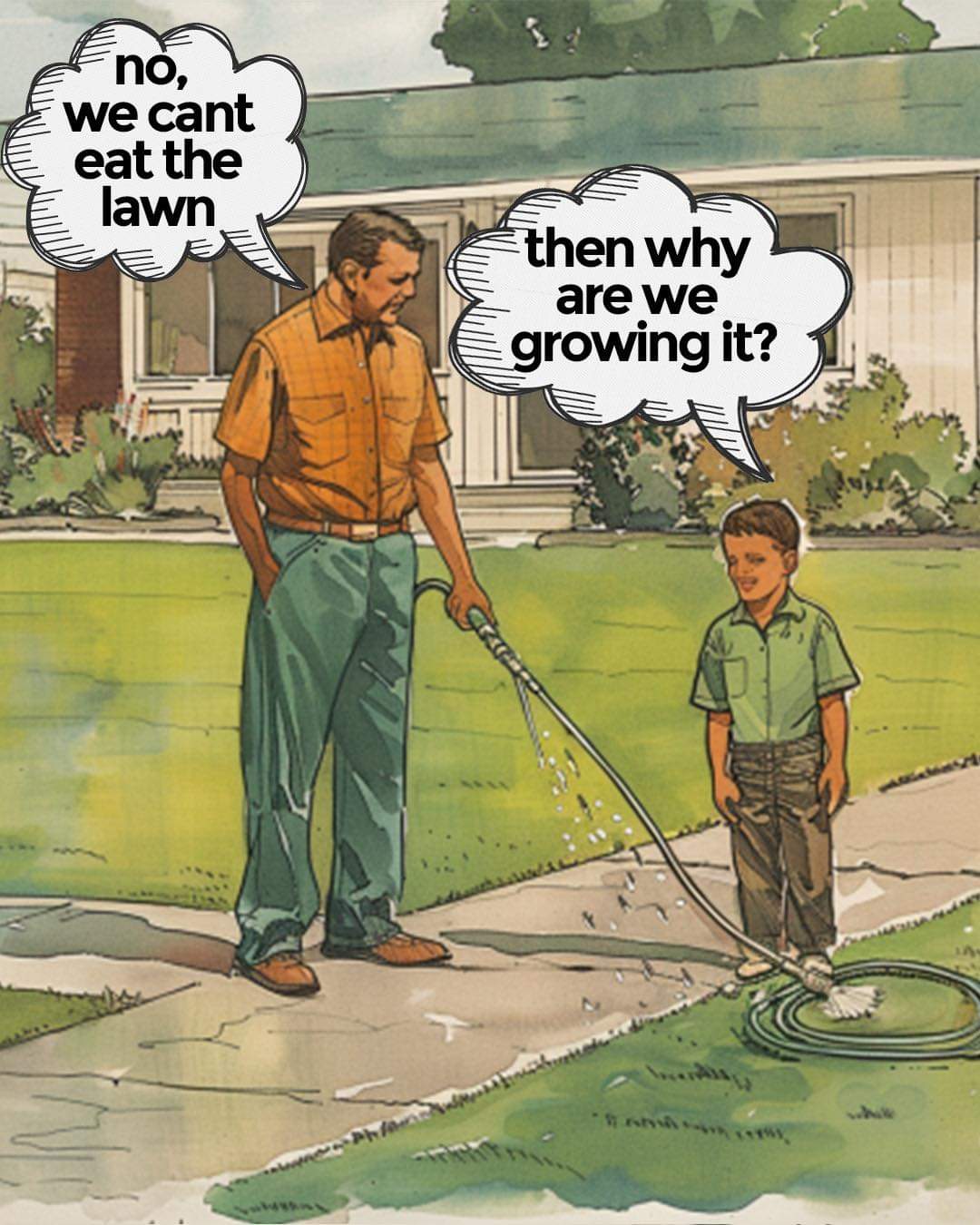552
you are viewing a single comment's thread
view the rest of the comments
view the rest of the comments
this post was submitted on 10 Jul 2024
552 points (92.1% liked)
No Lawns
2035 readers
1 users here now
What is No Lawns?
A community devoted to alternatives to monoculture lawns, with an emphasis on native plants and conservation. Rain gardens, xeriscaping, strolling gardens, native plants, and much more! (from official Reddit r/NoLawns)
Have questions or don't know where to begin?
- You can check our website
- Or our Reddit wiki
- Our FAQ
- Resources by Country
- Resources by US State
- Doug Tallamy AMA
Where can you find the official No Lawns socials?
Rules
- Be Civil
- Don't dox yourself
- Stay on Topic
- Don't break instance or Lemmy rules
Related Communities
- NativePlantGardening - Mander
- NativePlantGardening - Sh.itJust.Works
- Composting - SlrPnk
- Nature and Gardening - Beehaw
- Reclamation - SlrPnk
founded 1 year ago
MODERATORS

It's funny, my yard is essentially the community play ground. When I don't maintain it, the clover gets destroyed and it turns into a mud pit the kids can't play on really. Natural grasses didn't stand a chance even after being given the time to establish.
I consulted with a landscape architect who I was partnered with on an elementary school I was building looking for what I could do naturally to keep the yard in tact while the kids played..... this was a nationwide firm, on a LEED Gold project. Their answer? Grass. Rye grass, KBG and red fescue was the recommendation.
I nuked the lawn, soil and seeded it and two years later it's held up wonderfully and is enjoyed by a handful of families.
I planted Milk weed for the pollinators. They don't want most of the crap people plant trying to be Eco friendly anyways or so the landscape architect told me.
This anti lawn tirade is kinda anti-kid to a degree. When my kids are older and not using it every day, I'll tear it all out and hardscape it. I don't wanna maintain things for no purpose.
I see where you're coming from, but I'd argue that more public parks with playgrounds and fields to play on is better than lawns. In some places that's not prioritised, possibly where you are, and so it sounds great what you have going on!
But if there are enough public parks for kids to play at, then lawns just end up being wasted space that could instead be a garden or have native plants that help the native wildlife, or something like that.
I don't know anyone that actually uses their lawn for anything... Some people might host BBQs or stuff like that, in which case I don't mind. In my view, if it gets used, great! But most of the time they don't and they just suck up water resources and petrol on mowing with no real benefit
The best lawn is one that serves a purpose for a reasonably sized group of people. Feeling or being compelled to maintain something you don't want, that's of no value to you, or nature, is the worst part of lawn culture to me. Nobody should be expected to have a lawn they don't want, if you have a better use for the space, do that instead if you want.
Sounds like their lawn is at least good for their community. Maybe it's suboptimal urban planning, but that's far less bad than wanton waste of resources in my book.
I've got a play structure on mine. There's usually a half dozen kids on it daily.
Hope you have great homeowner's insurance in case any of them gets injured.
Keystone Plants by Ecoregion
@thatsTheCatch Looks like you accidentally posted the same comment twice.
Thanks
Imo what you're saying is reasonable not just for kids but for everyone - we need spaces for outdoor recreation and sport. And that includes some amount of native grasses. That being said, if you go through a suburb, most lawns are not used for that purpose and certainly, almost every boulevard is wasted. Many neighbourhoods either lack public parks, or the parks are not safely accessible by bicycle.
That's where the whole nolawn discussion comes in: to stop making lawns the default. They have a place, but we're overdoing it to the point of pushing out native species and pollinators such as bees and butterflies.
It's not anti-kid. Tons of people live in cities with no yards whatsoever and they still manage to raise children and to let those children play. Shared parks offer better play opportunities than private lawns do in an urban environment.